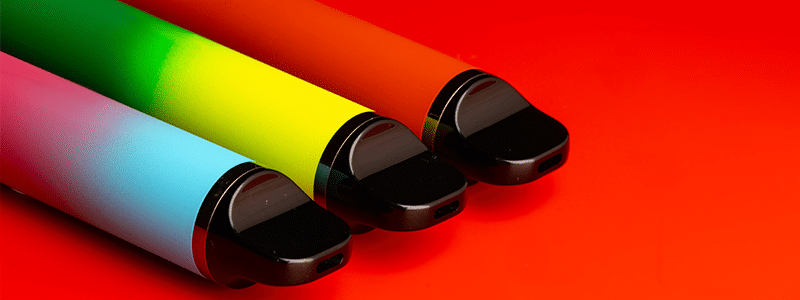We share the potential scope of Bulletin 12626-11 that is about to become law, which prohibits the sale of electronic cigarettes to minors and assimilates its regulation to tobacco-related activities.
On October 5, 2023, Congress passed the initiative after 3 years of processing (currently in the process of presidential approval). This is no coincidence, since it is due, among other reasons, to the explosive increase of electronic cigarettes in our country and the enormous growth in the use of these devices among minors.
In short, the new law modifies and complements the current Law No. 19,419, which regulates activities related to tobacco.
Below, you will find five significant elements of the initiative that is about to become law, bearing in mind that the bill recognizes three species of electronic cigarettes (reheated tobacco products, electronic nicotine delivery systems (ENDS) and nicotine-free electronic systems (NON-nicotine ENDS).
- Were e-cigarette advertising warnings and restrictions regulated?
No, the initiative only mandated the Ministry of Health to issue a supreme decree, within 12 months, which will establish the restrictions, which may be in relation to the places and warnings in the case of physical advertising, and the schedule, means and warnings in the case of media advertising.
- Is it possible to sell electronic cigarettes to minors?
No, the initiative prohibits the marketing, offering, distribution or delivery free of charge of electronic cigarettes to minors under 18 years of age, ordering sanctions that can reach up to the temporary closure of establishments that carry out this type of conduct in case of recidivism and a fine of up to 300 monthly tax units (18 million pesos).
- Is the labeling of e-cigarette packaging and accessories regulated?
Yes, the initiative introduces numerous modifications in terms of labeling, in relation to the phrases that must be compulsory on the packaging, the manufacturer’s name, place of manufacture, ingredients and their concentration, which in the case of electronic cigarettes with nicotine may not exceed 45 milligrams per milliliter.
In addition, the initiative introduces obligations for natural or legal persons that manufacture or import this type of products, which must report annually their ingredients, which must be previously authorized by the Ministry of Health.
Violation of this obligation may give rise to a sanitary summary with fines of up to 1000 monthly tax units (60 million pesos).
- Can people of legal age smoke electronic cigarettes in any public space?
No, since this initiative assimilates electronic cigarettes to tobacco, smoking is prohibited in enclosed spaces, as well as in open spaces corresponding to educational establishments, places where fuels are sold, in public and collective means of transportation, sea beaches, rivers or lakes.
Additionally, in places of public access, warnings prohibiting the smoking of electronic cigarettes must be displayed, which must be clearly visible and understandable.
- When will it become effective?
An important part of the law will be enforceable when the Decree of the Ministry of Health referred to in point 1 is published, thus establishing a rule of deferred effectiveness for up to 12 months after its publication in the Official Gazette. Thus, with the publication of the bill, only the obligation for the Ministry of Health to issue the aforementioned Decree arises, while waiting for the enforcement of the law itself.
As az considers that the approval of this initiative means a great advance for the regulation of this type of products, contributing to their adequate use in minors, safeguarding their potential harmful impact on the health of the population. The regulation will undoubtedly bring new challenges to those who offer this type of services, not only in terms of compliance, but also in relation to prevention and education in this type of matters.
For more information, please contact our Life Science team:
Ariela Agosin | Partner | aagosin@az.cl
Dafne Guerra | Senior Associate | dguerra@az.cl
Lucas Norambuena | Associate | lnorambuena@az.cl
Claudia Delgado | Associate | cdelgado@az.cl




